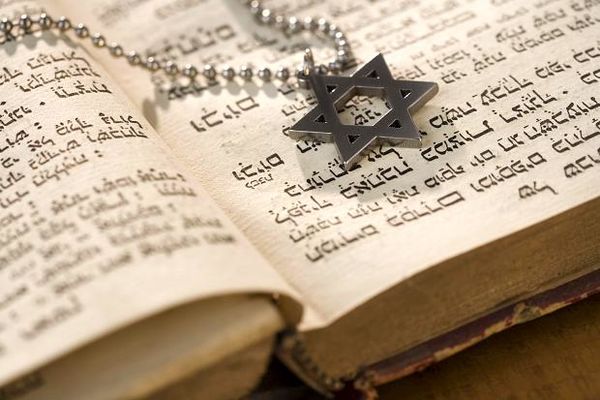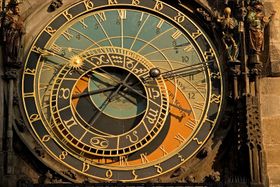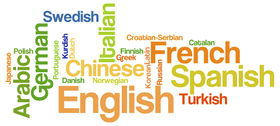Difference between revisions of "Category:Jewish"
| Line 135: | Line 135: | ||
* Susannah Heschel, ''Abraham Geiger and the Jewish Jesus'' (Chicago : University of Chicago Press, 1998). | * Susannah Heschel, ''Abraham Geiger and the Jewish Jesus'' (Chicago : University of Chicago Press, 1998). | ||
* Edward Breuer, "Jewish Biblical Scholarship from the 17th to the 19th centuries," in ''The Jewish Study Bible'', eds. Adele Berlin and Marc Zvi Brettler (2nd ed.; Oxford: Oxford University Press, | * Nils Roemer, ''Jewish Scholarship and Culture in Nineteenth-Century Germany: Between History and Faith'' (University of Wisconsin Press, 2005) | ||
* Edward Breuer, "Jewish Biblical Scholarship from the 17th to the 19th centuries," in ''The Jewish Study Bible'', eds. Adele Berlin and Marc Zvi Brettler (2nd ed.; Oxford: Oxford University Press, 2014). | |||
Revision as of 10:56, 24 June 2019
|
File:.jpg [[]] Traditionally, Jewish scholarship was not interested in the study of Second Temple Judaism and Christian Origins, rather focusing on the Hebrew Bible and Rabbinic literature. Only Jewish converts, like Guglielmo Raimondo Moncada and Sisto da Siena, served the curiosity of Christian scholars in the field. At the end of the 15th century, only the work of Isaac Abravanel on the Book of Daniel, in which he contrasted the Jewish and the Christian interpretation of the prophetic text, was of some interest for Second Temple Studies. The rediscovery of antiquity in the Renaissance, however, prompted Jewish scholars to revisit that period of their past in the chronicles of Abraham ben Samuel Zacuto and David ben Solomon Gans. After a long period of neglect, authors like Samuel Usque and Azariah de' Rossi went back to Josephus and Jewish-Hellenistic sources. In the 17th century, the Historia de' riti hebraici (1617) by Leone Modena offered the first summary of post-biblical Jewish rituals and beliefs, written by a Jew for a non-Jewish audience. Equally sensational in Europe was the treatise on the Jerusalem temple (Retrato del templo de Selomo, 1643) by Judah Leon Templo. A more critical approach to Pharisaic and early rabbinic sources emerged with Uriel Acosta and Baruch Spinoza, while Abraham ben Joseph ha-Levi published the first commentary on the Megillat Taanit. By the end of the 18th century, the early Haskalah movement produced its first fruits. Naphtali Herz Wessely and Judah Leib Ben Ze'ev published the first Jewish commentaries on the "deuterocanical books of Judith, Sirach and the Wisdom of Solomon. In 1908 Peter Beer wrote an Introduction to Second Temple Judaism based on Josephus. In the first half of the 19th century, as a consequence of the Emancipation, Jewish scholars are now active in the Universities where they actively promote the scientific study of Judaism. Isaak Markus Jost translated the Mishnah in German and in 1820-29 published the first comprehensive history of "post-biblical" Jews written by a Jewish historian. In France Joseph Salvador authored the first major work on Jesus by a Jewish scholar as well as a history of the Roman domination in Judea. In Italy Samuel David Luzzatto played a similar pioneering role for the development of Second Temple Studies. By the end of the 19th century Jewish scholars have an establish presence in the field of Second Temple Judaism. Their interests now cover the study of the OT Pseudepigrapha ([[]]) as well as early Islamic Studies. In the first decades of the 20th century Claude G. Montefiore established himself as one of leading international scholars in the New Testament. In 1910 Solomon Schechter published some Fragments of a Zadokite Work he had discovered at the Cairo Genizah; the document will be later identified of the Essene Damascus Document. After the HolocaustFrench historian Jules Isaac denounced the continuity between Christian anti-Judaism and racial Anti-Semitism, calling for a radical change in the Christian-Jewish relations. Jewish scholars, especially in the United States and Israel, were now active in all fields of Second Temple Judaism.
File:.jpg [[]] In the Jewish tradition, we don't see a development of works of fiction and art on Second Temple comparable to what Christianity developed since the Renaissance. There are two notable exceptions--composer Salomone Rossi and playwright Leone Modena. They were the product of the closest integration achieved by some Jewish communities in Northern Italy at the beginning of the 17th century. With the Emancipation Jewish authors had more opportunities in Europe to contribute to the cultural life of their time. In 1774 Venetian-born rabbi Jacob Raphael ben Simhah Judah Saraval commissioned Italian-Austrian composer Cristiano Giuseppe Lidarti to set to music an Esther oratorio for the Jewish community in Amsterdam. In the first half of the 19th century, composers Isaac Nathan, Samuele Levi, Felix Mendelssohn-Bartholdy, and Ferdinand Hiller, and Julius Kossarski authored music, oratorios and dramas on biblical figures like Judith or Paul and events, like the Destruction of Jerusalem, which were also popular in Christian tradition. For some time the struggle of oppressed Jews became a symbol of the universal struggle of oppressed peoples for their own freedom, in works of non-Jewish authors like Gioachino Rossini and Giuseppe Verdi. In the second half of the 19th century, Jewish writers and rabbis influenced by the Reform movement began addressing some subjects of the Second Temple period from a more distinctive Jewish point of view, for a Jewish audience. We can now talk of the emergence of a distinctively "Jewish" fictional literature. Credit goes to Isaac Mayer Wise, leader of the Reform movement in the United States, with his groundbreaking novels, The First of the Maccabees (1855) and The Combat of the People; or, Hillel and Herod (1858). The Jews were no longer described as a suffering people longing for a savior but as a fighting people, eager to take their destiny into their own hands. The example of Wise inspired in Europe the rise of a similar fictional literature in Hebrew (Kalman Schulman, Judah Loeb Landau), and German (Leopold Stein, Ludwig Philippson). In 1873 Anton G. Rubinstein and Salomon Hermann Mosenthal Soon, most of this literature, aimed to educate the masses, was written in Yiddish, the popular language of Jews in Eastern Europe by authors such as Isaac Meir Dick, Israel Meir Wohlman, Abraham Goldfaden, Nahum Meir Shaikewitz, Joseph Judah Lerner, Ya`akov Ter. In the United States, the example of Wise was followed by Henry Iliowizi and Herman Milton Bien. The emphasis on education also produced the emergence of a literature specifically addressed to children (Henry Pereira Mendes). For the first time Jewish women, such as Minnie Dessau Louis, Janie Jacobson and Elma Ehrlich Levinger, contributed to the field. In the 1920s and 1930s, some Jewish authors began to investigate subjects of the Christian tradition from a Jewish perspective, as a reaction against rampant anti-Semitism. Egon Friedell, Meir Wiener, and Franz Werfel in Germany, Nathan Bistritzky in Palestine, Cecil Roth in England, Edmond A. Fleg (1933) and Marc Chagall in France, up to the controversial and very successful trilogy of Sholem Asch in the United States. Other authors published novels aimed to strengthen the endurance of the Jewish people if difficult times of persecution After the Holocaust, Jewish authors focused on the reconstruction and the rebirth of the Jewish people around the new State of Israel. The leading author was Howard Fast (My Glorious Brothers, 1948; Spartacus, 1951; Agrippa's Daughter, 1964). The relationship between Christians and Jews was now more critically examined in light of the moral failure of Christianity to contrast the Holocaust. With the demise of Yiddish literature, a national literature in Hebrew developed in Israel, drawing inspiration from events of heroism and national unity from the past.
|
|
Critical Bibliography
- Harry M. Orlinsky, "Jewish Biblical Scholarship in America," in The Jewish Quarterly Review 45.4 (Apr., 1955), pp. 374-412; and 47. 4 (Apr., 1957), pp. 345-353.
- Jonathan D. Sarna & Nahum M. Sarna, "Jewish Bible Scholarship and Translations in the United States," in Ernest S. Frerichs (ed.), The Bible and Bibles in America (Atlanta, 1988).
- S. David Sperling, Students of the Covenant: A History of Jewish Biblical Scholarship in North America (Atlanta: Scholars Press, 1992).
- Susannah Heschel, Abraham Geiger and the Jewish Jesus (Chicago : University of Chicago Press, 1998).
- Nils Roemer, Jewish Scholarship and Culture in Nineteenth-Century Germany: Between History and Faith (University of Wisconsin Press, 2005)
- Edward Breuer, "Jewish Biblical Scholarship from the 17th to the 19th centuries," in The Jewish Study Bible, eds. Adele Berlin and Marc Zvi Brettler (2nd ed.; Oxford: Oxford University Press, 2014).
Subcategories
This category has the following 8 subcategories, out of 8 total.
1
- 1570 Rossi, Salomone (composer) ITA
- 1809 Mendelssohn-Bartholdy, Felix (composer) DEU
- 1810 Geiger, Abraham (scholar) DEU
- 1813 Levi, Samuele (composer) ITA
- 1862 Schildkraut, Rudolph (actor) AUT
- 1866 Sandow, Ludwig (composer) AUT
- 1913 Gordon, Robert (actor, director) USA
- 1943 Levine, James (conductor) USA
Pages in category "Jewish"
The following 200 pages are in this category, out of 390 total.
(previous page) (next page)- Jewish Authorship (1450s)
- Jewish Authorship (1500s)
- Jewish Authorship (1600s)
- Jewish Authorship (1700s)
- Jewish Authorship (1800s)
- Jewish Authorship (1850s)
- Jewish Authorship (1900s)
- Jewish Authorship (1910s)
- Jewish Authorship (1920s)
- Jewish Authorship (1930s)
- Jewish Authorship (1940s)
- Jewish Authorship (1950s)
- Jewish Authorship (1960s)
- Jewish Authorship (1970s)
- Jewish Authorship (1980s)
- Jewish Authorship (1990s)
- Jewish Authorship (2000s)
- Jewish Authorship (2010s)
1
- Yehuda Halevi (M / Spain, 1075/85-1141), scholar
- Menahem Recanati (M / Italy, 1250-1310), scholar
- Abraham Conat (M / Italy, 15th cent.), printer
- Isaac Abravanel (M / Portugal, Spain, Italy, 1437-1508), scholar
- Guglielmo Raimondo Moncada (M / Italy, 15th cent.), scholar, translator
- Solomon ibn Verga (M / Spain, 1450c-1525c), scholar
- Abraham ben Samuel Zacuto (M / Spain, Portugal, Tunisia, 1452-1515), scholar
- Elia Levita (M / Germany, Italy, 1469-1549), scholar
- Moses Alshekh (1498-1593), scholar
- Jacob Tam ibn Yahya
- Samuel Usque (M / Portugal, Italy, 1500-1555c), scholar
- Azariah de' Rossi (M / Italy, 1513-1578), scholar
- Sisto da Siena (M / Italy, 1520-1569), scholar
- David de Pomis (M / Italy, 1525-1593), scholar
- Mordecai Jaffe (M / Czechia, 1530-1612), scholar
- David ben Solomon Gans (1541-1613), scholar
- Philip Ferdinand (1555-1598), scholar
- Leone Modena (M / Italy, 1571-1648), scholar, playwright
- Uriel Acosta (M / Portugal, Netherlands, 1585-1640), scholar
- Joseph Semah Arias (M / Spain, 17th century), scholar
- Judah Leon Templo
- Abraham ben Joseph ha-Levi (1620c-1670c), scholar
- Charles-Marie de Veil (1630-1685), scholar
- Baruch Spinoza (M / Netherlands, 1632-1677), scholar
- David Nieto (M / Italy, Britain, 1654-1728), scholar
- Judah Monis (M / Italy, United States, 1683-1764), scholar
- Naphtali Herz Wessely (1725-1805), scholar
- Peter Beer (1758-1838), scholar
- Judah Leib Ben Ze'ev (1764-1811), scholar
- Isaac Nathan (M / Britain, Australia, 1792-1864), composer
- Isaak Markus Jost (1793-1860), scholar
- Joseph Salvador (M / France, 1796-1873), scholar
- Morris Jacob Raphall (M / Sweden, Britain, United States, 1798-1868), scholar
- Samuel David Luzzatto (M / Italy, 1800-1865), scholar
- Salomon Munk (1803-1867), scholar
- Gustav Weil (1808–1889), scholar
- Levi Herzfeld (1810-1884), scholar
- Leopold Stein (M / Germany, 1810-1882), playwright
- Joseph Derenbourg (1811-1895), scholar
- Ferdinand Hiller (M / Germany, 1811-1885), composer
- Ludwig Philippson (M / Germany, 1811-1889), novelist
- Julius Kossarski (M / Germany, 1812-1879), playwright
- Isaac Meir Dick (1814-1893), novelist
- Giuseppe Rafaele Levi (M / Italy, 1814-1874), scholar
- Mór Ballagi (1815-1891), scholar
- Grace Aguilar
- Heinrich Hirsch Graetz (1817-1891), scholar
- Lazare Eliezer Wogue (1817-1897), scholar & translator
- Kalman Schulman (1819-1899), novelist
- Isaac Mayer Wise (M / Czechia, United States, 1819-1900), scholar, novelist
- Hilary Nussbaum (1820-1895), scholar
- Isaac Goldstein
- Adolph Jellinek (1821-1893), scholar
- Israel Meir Wohlman (1821-1913), playwright
- Elia Benamozegh (M / Italy, 1823-1900), scholar
- Solomon Rubin (1823-1910), scholar
- Alfred Edersheim (1825-1889), scholar
- Anton G. Rubinstein (M / Russia, 1829-1894), composer
- Herman Milton Bien (M / United States, 1831-1895), playwright, novelist
- Joseph Joachim (M / Hungary, 1831-1907), composer
- Samuel Baeck (1834-1912), scholar
- David Castelli (M / Italy, 1836-1901), scholar
- Moïse Schwab (1839-1918), scholar
- Abraham Goldfaden (1840-1908), playwright and composer
- Henri Léopold Lévy (1840-1904), artist
- Minnie Dessau Louis (F / United States, 1841-1922), poet
- Alexander Kohut (M / Hungary, 1842-1894), scholar
- Kaufmann Kohler (1843-1926), scholar
- Moses Horowitz (1844-1910), playwright
- Solomon Schechter (1847-1915), scholar
- Joseph Judah Lerner (M / Russia, 1849-1907), playwright
- Solomon Schill (1849-1918), scholar
- Nahum Meir Shaikewitz (1849-1905), novelist
- Wilhelm Bacher (1850-1913), scholar
- Ignác Goldziher (1850-1921), scholar
- Henry Iliowizi (1850-1911), playwright
- Ya`akov Ter (1850-1935), playwright
- Henry Pereira Mendes (1852-1937), playwright
- Cossmann Werner (1854-1918), scholar
- Moses Gaster (1856-1939), scholar
- Maurycy Gottlieb (1856-1879), artist
- Israël Lévi (1856-1939), scholar
- Richard Waddy Moss (1856-1935), scholar
- Moisés Rubin (M / Argentina, 1856-1940), novelist
- Israel Abrahams (1858-1924), scholar
- David Samuel Margoliouth (1858-1940), scholar
- Claude G. Montefiore (1858-1938), scholar
- Adolphe Danziger De Castro (1859-1959), writer
- Simon Dubnow (M / Russia, 1860-1941), scholar
- Théodore Reinach (1860-1928), scholar
- Samuel Hirszenberg (1865-1908), artist
- Lucien Lévy-Dhurmer (1865-1953), artist
- Judah Loeb Landau (M / Austria, 1866-1942), playwright
- Max Leopold Margolis (1866-1932), scholar
- Felice Momigliano (M / Italy, 1866-1924), scholar
- Adolf Büchler (1867-1939), scholar
- Gerald Friedlander (1871-1923), scholar
- Lazarus Goldschmidt (1871-1950), scholar
- Leo Baeck (1873-1956), scholar
- Louis Ginzberg (1873-1953), scholar
- Jacob Zallel Lauterbach (1873-1942), scholar
- Meir Balaban (1874-1942), scholar
- Edmond A. Fleg (M / France, 1874-1963), novelist
- Abraham Kahana (M / Russia, Palestine, 1874-1946), scholar
- Joseph Klausner (M / Lithuania, Palestine, 1874-1958), scholar
- Felix Perles (1874-1933), scholar
- Moses Schorr (1874-1941), scholar
- Henri Bernstein (M / France, 1876-1953), playwright
- Emma Dessau-Goitein (F / Germany, Italy, 1877-1968), artist
- Hyman Gerson Enelow (1877-1934), scholar
- Jules Isaac (M / France, 1877-1963), scholar
- Egon Friedell (M / Austria, 1878-1938), playwright
- Paul P. Levertoff (1878-1954), scholar & translator
- Alexander Marx (1878-1953), scholar
- Arno Nadel (M / Germany, 1878-1943), composer
- Alla Nazimova (F / Russia, United States, 1879-1945), actor
- Eugen Täubler (1879-1953), scholar
- Jacob Weinberg (M / Russia, United States, 1879-1956), composer
- Sholem Asch (1880-1957), novelist
- Aharon Ben-Or (M / Palestine, 1880), novelist
- Jacob Epstein (1880-1959), artist
- Max Radin (1880-1950), scholar
- Jehuda Leib Wohlman (1880-1955), playwright
- Herbert Cutner (1881-1969), nonfiction writer
- Israel Zolli (1881-1956), scholar
- Konrad Bercovici (1882–1961), novelist
- Robert Eisler
- Norman Bentwich (1883-1971), scholar
- Umberto Cassuto (M / Italy, Israel, 1883-1951), scholar
- G. George Fox (b.1883), nonfiction writer
- Max Brod (M / Czechia, Israel, 1884-1968), novelist
- Lion Feuchtwanger (M / Germany, 1884-1958), novelist
- Joseph Reider (1884-1960), scholar
- Max Oppenheimer (Austria, United States, 1885-1954), artist
- Joseph Achron (1886-1943), composer
- Giorgio Levi Della Vida (1886-1967), scholar
- Joseph Opatoshu (1886-1954), novelist
- Elia Samuele Artom (1887-1965), scholar
- Marc Chagall (1887-1985), artist
- Abraham Cohen (1887-1957), scholar
- Elma Ehrlich Levinger (1887-1958), playwright
- Zalman Rejzen (1887-1941), translator
- Yehiel Yeshaia Trunk (1887-1961), novelist
- Harry Austryn Wolfson (1887-1974), scholar
- Nahum Levison (b.1888), scholar
- Mendl Osherowitch (1888-1965), novelist
- Guido Kisch (M / Czechia, Germany, United States, Switzerland, 1889-1985), scholar
- Eleazar Sukenik (1889-1953), scholar
- ~ Hanoch Albeck (1890-1972), Polish Israeli scholar
- Joshua Bloch (1890-1957), scholar
- Elias Gilner (b.1890), novelist
- Yehoshua Gutman (1890-1963), scholar
- Abraham Aaron Neuman
- Anna Belle Safier (F / United States, 20th cent.), composer
- Salomon A. Birnbaum (1891-1990), scholar
- Izak Goller (1891-1939), playwright
- Tsevi Livneh (M / Israel, 1891-1985), novelist
- Jacob Weinshall (M / Israel, 1891-1980), novelist
- Solomon Zeitlin (M / United States, 1892-1976), scholar
- Meir Wiener (1893-1941), poet
- Alberto Pincherle (M / Italy, 1894-1979), scholar
- Victor Tcherikover (1894-1959), scholar
- Salo W. Baron (1895-1989), scholar
- Abraham Wolf Binder (M / United States, 1895-1966), composer
- Mario Castelnuovo-Tedesco (M / Italy, United States, 1895-1968), composer
- Louis Finkelstein (1895-1991), scholar
- Maurice Samuel (1895-1972), translator
- ~ Edmund Menahem Stein (1895-1943), Jewish-Polish scholar
- Franz Werfel (M / Czechia, 1895-1976), playwright
- Nathan Bistritzky (M / Israel, 1896-1980), playwright
- Abraham Raphael Forsyth (1896-1954), novelist
- Joseph Schildkraut (M / Austria, United States, 1896-1964), actor
- Elias J. Bickerman (1897-1981), scholar
- Leon Feinberg (1897-1969), novelist
- Gershom Gerhard Scholem (1897-1982), scholar
- Beryl David Cohon (1898-1976), scholar
- Abraham Schalit (1898-1979), scholar
- Isaac Lamdan (1899-1954), poet
- Siegfried E. van Praag (M / Netherlands, 1899-2002), novelist
- Adolf Reifenberg (1899-1953), scholar
- Cecil Roth (1899-1970), scholar and novelist


